2022 Split Open Tennis Tournament Returns to Firule Next Week
April 16, 2022 - The 2022 Split Open tennis tournament returns next week, featuring Croatian tennis stars Borna Gojo and Duje Ajduković.
Everything is ready for the new edition of the Split Open, an ATP Challenger tournament with a prize fund of 45,730 euros, which will be played from next Monday to Sunday (April 18-24) on the grounds of Tennis Club Firule. A press conference was held on Friday in Split to announce the next edition of the tournament, reports HTS.
"We are all happy that the tournament starts in a few days. This is a great opportunity for our players. Borna Gojo and Duje Ajduković are in the main tournament, and several more of our tennis players will play in the qualifications. So I hope that time will serve us as well. I started my tennis career here," said the tournament director and famous Croatian tennis player Jelena Kostanić.
"We are delighted that the Challenger will be played in Split. I think we have the best location in the world for tennis courts. Therefore, this is the best invitation, not only to the players and guests but also to our citizens," said the president of the Split Tourist Board, Alijana Vukšić.
"From the beginning, the city of Split has supported this tournament. This is a great opportunity for young players to gain valuable experience. I would like us to enjoy great matches and have as many spectators as possible. It is also important that the tournament is held during the pre-season," said the representative of the City of Split, Igor Maretic.
"In addition to the Challenger, we have added two Futures where players pay for accommodation themselves. I want to thank the City for recognizing the project in these dark times. Many of our citizens and recreational players are satisfied with this event," said the president of TK Split 1950, Ivica Kekez.
To follow the latest sports news in Croatia, follow TCN's dedicated page.
Pelješac Tradition Museum Opens Ahead of Tourist Season
April 16, 2022 - The Pelješac Tradition Museum exhibits a unique collection of amphorae, old tools, bread ovens, and 19th-century olive mills collected by the Mikulić family.
An impressive collection of amphorae more than two thousand years old, grinders, barrels, brandy cauldrons, old tools, fireplaces, bread ovens, paintings of the Virgin Mary, patron saint of vineyards, saddles, and a 19th-century olive oil mill of the famous Dubrovnik family Sorkočević - are just some of the exhibits in the unique collection that Mikulić family members have been collecting for years.
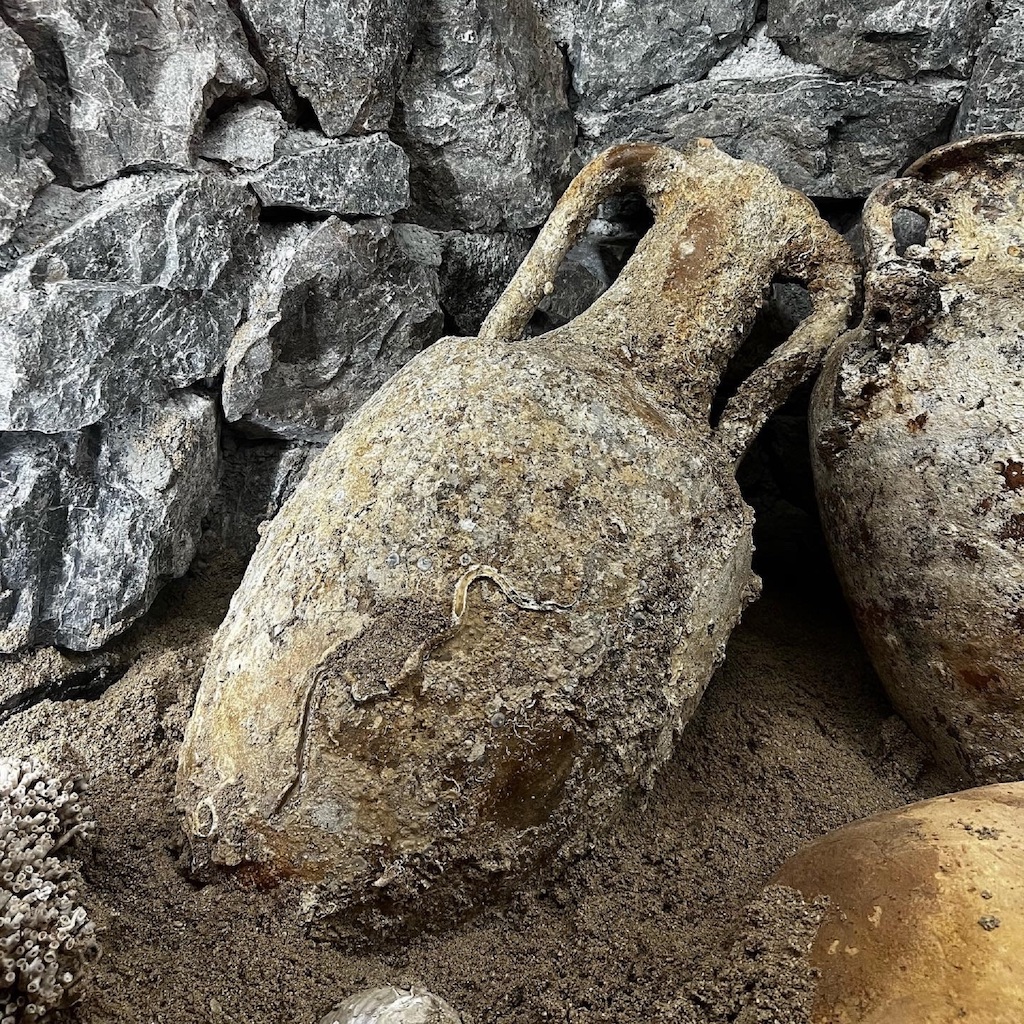
In order to tell a story about the tradition and beauty of life on Pelješac, they opened the "Pelješac Tradition Museum" as part of their famous boutique winery in the Postup wine-growing location of Mokalo. An experience for all the senses because the tour ends with a tasting of their top pošip and postup, among which Don Josip stands out.
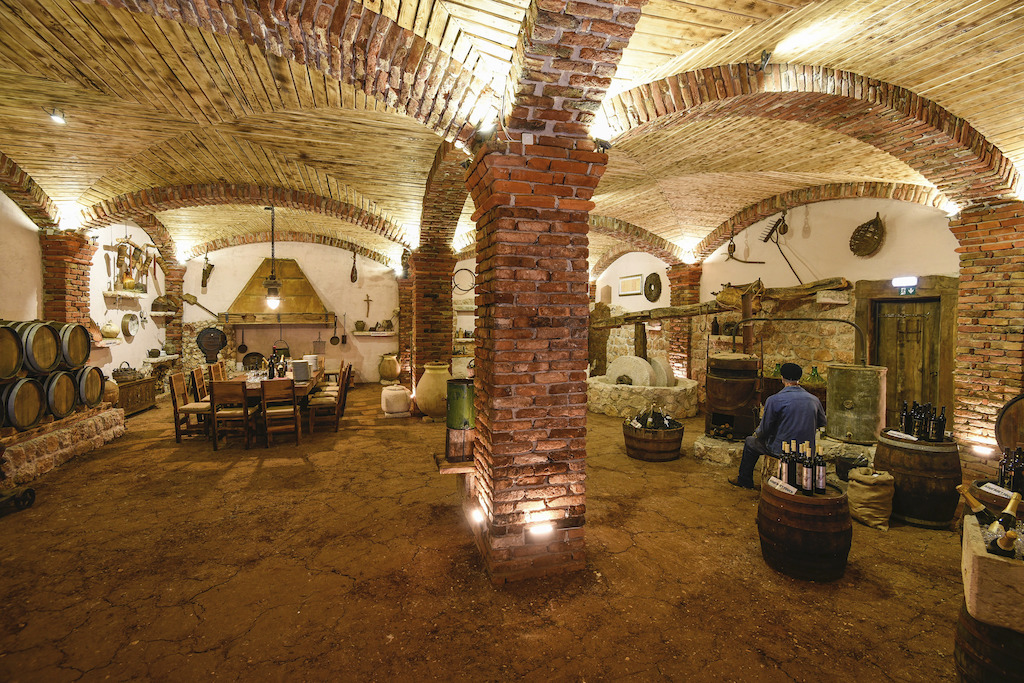
"Our son Antonio named our famous act as a sign of respect for his grandfather Josip, from whom he inherited his love for viticulture, winemaking, and olive production. We have been engaged in vine growing and winemaking for generations, as have many families on Pelješac. We dedicated this museum to them, the farmers of Pelješac. Our tour symbolically begins in front of a picture of grandfather Josip and grandson Antonio; the focus is on wine transported from Pelješac in amphorae in antiquity and until the middle of the last century in bellows on loads and mules in a caravan. We have shown all this in our Museum, and in the end, the impressions are best gathered with wine," points out Igor Mikulić, who realized his dream by opening the Pelješac Tradition Museum.
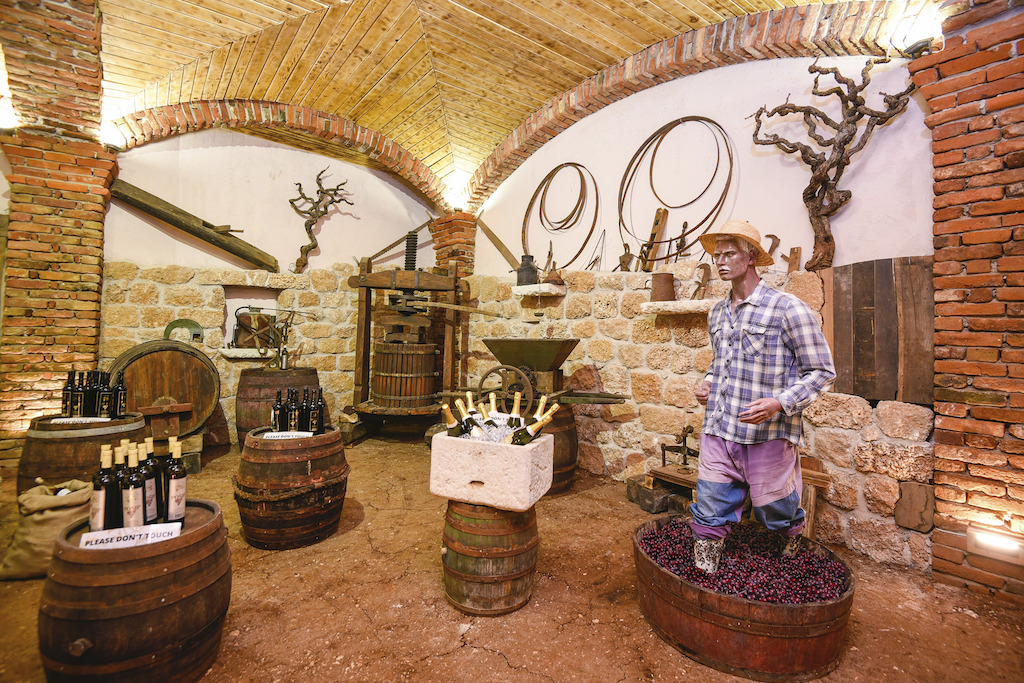
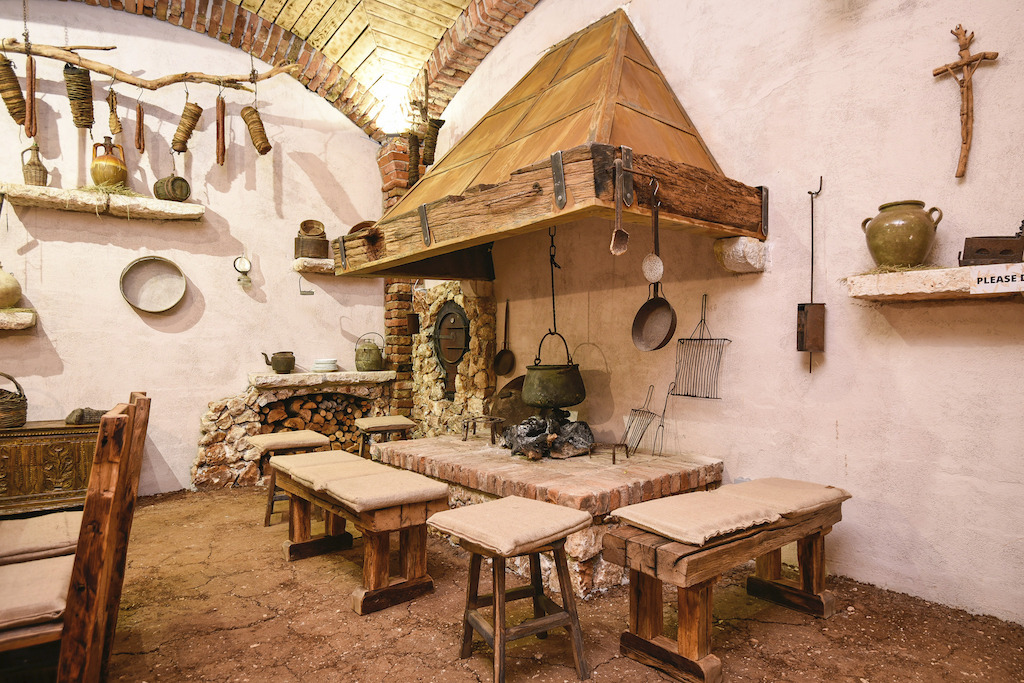
He has been creating this rich collection for years, although most of the exhibits have been very well known in tourist and wine circles for generations owned by families. His son Antonio, daughter Adriana, and wife Sabina are also involved in the business.
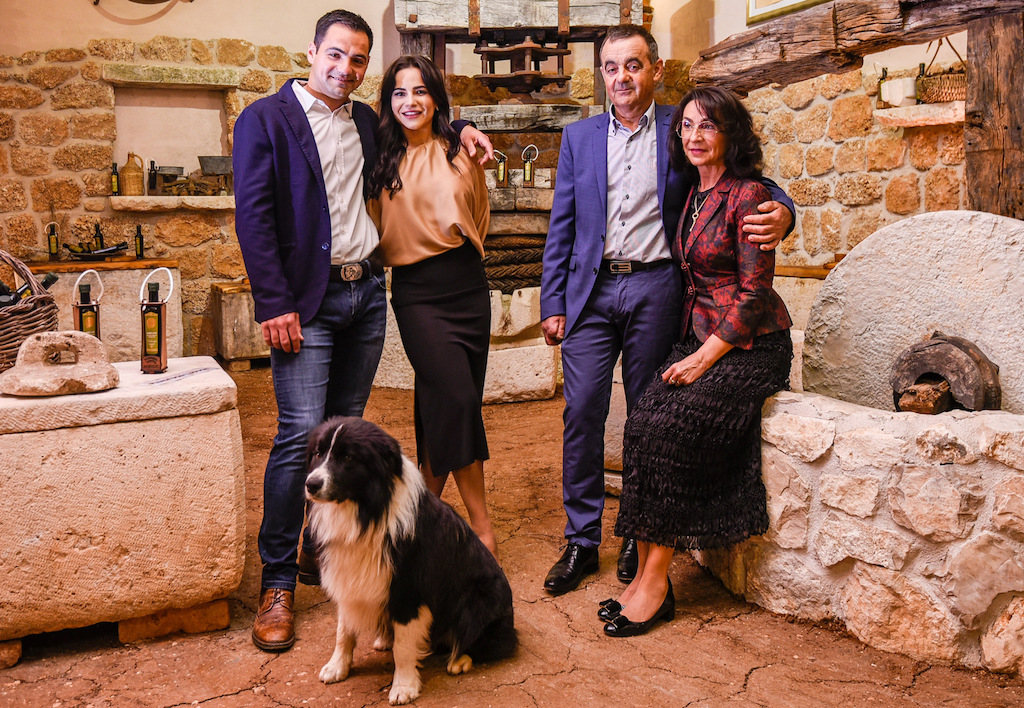
The new project opened before Easter, and they completed the rich offer ahead of the new tourist season. In addition to the unique Adriatic wine resort camp and glamping and the award-winning boutique winery in Mokalo, they own the luxury heritage hotel Adriatic with a beautiful la carte restaurant.
All photos by Boutique vinarija Mikulić
For more, check out our lifestyle section.
2022 Split Tourism Figures: 4,000 Tourists Expected over Easter Weekend
April 16, 2022 - The 2022 Split tourism figures are already higher than the record in 2019, and around 4,000 tourists are expected during Easter weekend.
Tourists are quickly beginning to fill all Split cafes and restaurants, which is an excellent introduction to the upcoming tourist season. After two pandemic years, a return to the 'old normal' is expected, reports Dalmacija Danas.
In the peak season, in July and August, it is impossible to pass through the city center due to thousands of guests, though they are increasing numbers in the pre-season.
Tourism workers in the city center are full of optimism, hoping that this tourist season will be better than the record 2019, a time before the coronavirus and epidemiological measures that have restricted tourism for two years.
Split Tourist Board director Alijana Vukšić spoke about what we can expect this pre-season on Friday:
"Currently, there are over three thousand guests in the city, and we expect over four thousand for the holidays. We have cruisers in the city, today - there are two, and tomorrow there will be two. These are all projections; we will know the exact numbers when all this is over. That number is certainly much higher because there are many excursionists," Vukšić said.
Split is already recording good tourist results.
"We can compare the numbers with the most successful year, i.e., 2019. The city of Split in the first three months and the first 15 days of April recorded better results than in 2019. In the first three months of this year, we have 30,000 more nights than then. We hope that this tourist year will be successful, and the facts and figures in these first three months speak in favor of that," says Alijana Vukšić.
Apart from foreign guests, there are also many from Croatia.
"There are many guests from Croatia, and the USA, Germany, France, and Ukraine are represented in large numbers, which has recently recorded an increased number of arrivals and overnight stays," Vukšić adds.
Easter events have been happening in the city for ten days now, and there is something for everyone.
"The Association of Veterans painted large Easter eggs on the Riva together with children; the Juraj Bonači Center also painted Easter eggs. They are exhibited in Đardin, which we declared an Easter park this year. We also have several music and stage programs," Alijana Vukšić concluded and congratulated her fellow citizens on Easter.
For more, check out our lifestyle section.
Istrian Police Remove Explosive Near Vrsar Following Fisherman's Call
April the 16th, 2022 - Istrian police have pulled an explosive device from the sea close to Vrsar after a fisherman checking his catch net alterted them to its presence below the surface.
As Morski writes, on April the 12th, Istrian police officers removed 200 pieces of small ammunition from the port of Stinjan, while not long after, in the Port of Vrsar, they acted on the report of a fisherman who found explosive devices while raising his catch net. An explosion protection officer was sent to the scene and determined that they were two artillery shells, he then seized them for their proper and safe destruction.
As for the people who voluntarily handed over their weapons to the Istrian police recently, in the area of Zminj, while cleaning the house of someone who had passed away, one citizen came across an automatic rifle with a magazine, 285 pieces of various types of ammunition and six shell casings. In the City of Pula, someone found a hand grenade from World War II while cleaning out their yard, while in Pazin, a woman handed over an air rifle to the Istrian police force.
The Istrian Police Administration continues to call on people living across Istria County to make their lives safer and to get rid of any weapons they have without facing any punishment or sanctions.
All people who illegally possess weapons, ammunition or mines and explosives can call their nearest police station completely anonymously in order to hand over or disable such means without facing any further legal action. No misdemeanor or criminal proceedings shall be instituted against those persons who voluntarily surrender such weapons or other means, if they surrender their weapons themselves, before the police begin to conduct reconnaissance operations.
It is also important to emphasize that people must not bring these weapons in person to the police station or administrations, in order to avoid their activation and unwanted injury, but to inform the police by calling the number 192, after which professional and trained police officers will come to your home to collect these weapons.
For more, check out our dedicated lifestyle section.
Croatian Prosciutto Days to be Held in City of Split This Year
April the 16th, 2022 - The Croatian Prosciutto Days event is set to be held in the City of Split this year, as lovers of cured meat from Drnis, Krk, Istria and beyond gear up to celebrate this delicacy.
As Morski writes, Croatian prosciutto, presented through its four brands (Dalmatian, Drnis, Istrian and Krk) is one of the most attractive elements of the gastronomic heritage and cultural identity of Croatia. Tradition, autochthony and quality are all confirmed by certification and the standardisation of production, and domestic producers united in the Croatian Prosciutto Cluster are able to deliver a top product of uniform quality.
''We're promoting prosciutto (Croatian: prsut) as a traditional autochthonous gastronomic product and we're working on positioning thw Republic of Croatia as a gastronomic destination,'' they pointed out from the Croatian Prosciutto Cluster. Croatian prosciutto has become one of the most powerful products on the domestic market, in the production, distribution and sale of which excellent business opportunities are provided.
The continuous growth of production, the need for continuous improvement and creating the preconditions for a serious market breakthrough, have encouraged us to gather the best producers together every single year, as well as the greatest experts and businesses involved in the production of Croatian prosciutto. The Days of Croatian Prosciutto event is a traditional professional and business gathering dedicated to achieving two groups of goals - the continuous improvement and raising the level of product quality, its protection and promotion and connecting stakeholders in the production and distribution chain to achieve business growth,'' they explained from the Croatian Prosciutto Cluster.
This year, the City of Split will be the host of Croatian Prosciutto Days, and it will form as a professional and business meeting dedicated to the country's most famous cured meat delicacy, which will be held on April the 22nd and 23rd. The goal of the Croatian Prosciutto Days event is to promote this much loved, traditional gastronomic product and preserve the gastronomic heritage of the Adriatic regions from which it hails. From an economic point of view, this expert meeting encourages the exchange of knowledge and economic cooperation between pig production, slaughterhouses and prosciutto production, as well as all participants in the "from field to table" chain.
The wish of the organisers of 2022's Croatian Prosciutto Days is to present the best examples of good practice from across Dalmatia, Kvarner and Istria as part of the event, and with the exhibition, socialising and professional work, they'll try to contribute to strengthening the Croatian prosciutto brand and its valorisation in the food and tourism industry.
On the first day, Friday, on April the 22nd, the Park Split Hotel will host the grand opening with a series of workshops and round tables with the aim of improving the production and business of the prosciutto industry, as well as expert evaluation and proclamation of the best prosciutto present. The next day at Prokurative at 08:00, an exhibition-exhibition event will be organised, where prosciutto producers will present themselves to the public. Visitors will also be able to see, taste and buy prosciutto from different Croatian regions.
Despite the growth of production, increasing quality and the fact that prosciutto brands are protected on the EU's single market, much of the offer is still based on imported substitute products. During the meeting, a round table and workshops will be held, and through dialogue an attempt will be made to find a common language in order to strengthen the brand of Croatian prosciutto as an autochthonous delicacy.
For more, check out our lifestyle section.
Zagreb ReversingLabs Member of Largest Open Source Security Initiative
April the 16th, 2022 - The Zagreb ReversingLabs company has become a member of the world's largest open source security initiative, placing Croatia on the map of success in yet another sector.
As Poslovni Dnevnik writes, among the 20 global technology and other companies that joined Linux's Open Source Security Foundation in March (OpenSSF) is the Zagreb ReversingLabs company, a cybersecurity specialist enterprise and one of the fastest growing IT companies in all of Croatia.
OpenSSF has been operating under the auspices of the non-profit Linux Foundation since August 2020, and it brings together the world's most important initiatives to increase open source security. The latest round of membership enlargement saw Spotify, MongoDB, Alibaba Cloud, Citi, Huawei Technologies and others join, as well as the Zagreb ReversingLabs company. This followed recent speeches to congressional bodies on the growing risks of open source and the need to increase its security. The White House also held a summit on the same topic.
Open source security is under the magnifying glass of the American authorities after a number of organisations and corporations were attacked back in 2020 and 2021 through the software supply chain. With the May 2021 decree, American President Joe Biden enacted a series of measures to improve the security of software and digital infrastructure in the country, and a significant portion of those measures relate to the supply chain. Further improvements to the regulatory framework are also expected.
“More and more new threats are coming from the software supply chain, and among them are risks from the open source ecosystem. Due to a number of interdependencies and complexities, companies often don't have any insight into the origin of the code and components built into their software. It's difficult for them to recognise malicious elements in applications and track every component from its origin to the final version of the software. We're happy to join OpenSSF and we believe that we can contribute in the field of automation of more complex lists of software components, as well as when it comes to further reducing risks related to the supply chain and software development process,'' said Mario Vuksan, CEO and co-founder of the Zagreb ReversingLabs company.
''Open source is the foundation on which software is built today. Our work at OpenSSF, along with the contributions of companies and individuals from around the world, is key to the improvements we want to achieve,'' said Brian Behlendorf, the CEO of OpenSSF. According to him, OpenSFF is a neutral forum with broad support through which significant progress can be made when it comes to open source security.
The Zagreb ReversingLabs company
ReversingLabs has built the world's largest malware database through a development centre located right here in Zagreb. The company, founded back in 2009 by Mario Vuksan and Tomislav Pericin, won the title of Black Unicorn in the United States of America for the third year in a row last year. It is awarded in the cybersecurity industry to companies with growth potential up to a market value of one billion dollars. ReversingLabs' development centre and expertise are all in Zagreb, and their customers - leading social networks, antivirus companies, corporations and government agencies - are rrom all around the world.
So far, they have raised 81 million US dollars in two investment rounds and invested it in new product development, organisational growth and further placement in the US market. They employ 120 people here in Zagreb, and another 60 in the American city of Boston. They have significant sales and marketing activities in the US, where they have been present almost since their inception.
The Zagreb ReversingLabs company was also among the first to interpret the anatomy of the attack on the American IT company SolarWinds, which marked the entire year of 2021 and is one of the largest known cyber incidents in the world to date.
For more, check out our business section.
Zagreb to Become AI and Data Science Scene's Centre in May
April the 16th, 2022 - The City of Zagreb is set to become the centre of data science and artificial intelligence (AI) this May, with six keynote speakers and many lectures on offer.
As Poslovni Dnevnik writes, from the 10th to the 12th of May at the Plaza Event Centre (formerly the Hypo Centre), participants in the Data Science Croatia (DSC) 22 event will have the opportunity to listen to six keynote speakers, be present for as many as sixty high-quality lectures and ten technical tutorials by international experts from companies such as The Financial Times (FT), Meta (Facebook/Instagram), Rimac Technologies, Science Park Gratz, SQream, and more.
Data Science in Production, Big Data & Data Engineering, Data Analytics, Decision Intelligence, Data4Good, Ethical AI, Open AI, Data Governance, Data Migration to the Cloud, Building Data & AI Teams are just some of the topics which will be discussed in the heart of Zagreb next month.
Speakers include Leanne Fitzpatrick, Data Science Director at The Financial Times, Martin Mössler, Director at Science Park Graz, Sacha Vrazic, Autonomous Vehicle Development Director at Rimac Technologies, David Akka, SVP EMEA at SQream, Vuk Vukovic, CEO at Oraclum Intelligence Systems, Emmanuel R. Goffi, co-director & co-founder at the Global AI Ethics Institute, Josip Saban, solution manager at Erste Digital, Ana Mestrovic, a Professor from the University of Rijeka, Enes Deumic, lead data scientist at Noom Inc. and others.
The regional franchise Data Science Conference and the Croatian Data Science 22 Economy are merging together to create a completely new event, with the goal of creating the most important annual data science regional event for data lovers and professionals in this region. During the three days of this upcoming Zagreb conference, 500 people will be in attendance.
For more information on upcoming events in Zagreb and across the rest of Croatia, make sure to check out our dedicated lifestyle section.
Sirnica: A Croatian Easter Delicacy
15 April 2020 - Sirnica or Pinca, is an indispensable part of any Easter table. Here’s a look at this traditional Croatian Easter delicacy and how you can try your hand at making your own!
Just a couple of days ago, I was having coffee with some colleagues and discussing Easter plans. A few were lamenting how far behind they were in their Easter baking, while others were exchanging recipes for all the delicious goodies, they were planning on making in the run up to Easter Sunday.
Since we were speaking of Easter treats, I simply had to ask “but, why is it when I translate Sirnica, Google tells me it’s cheesecake? But there’s no cheese in the recipe?”, “because it looks like cheese! With the shape and color”.
“Right! I think I’m going to try making it this weekend”, I said in full confidence of my amateur baking skills. A collective “noooooooooooooooooo!” ensued. “I don’t make it for Easter. No one does, only old ladies who have the time. Ma dai! So much work, almost 24 hours to finish it, waiting for it to rise and then kneading it, and rising again. No, no, I just buy it instead”.
What is Sirnica you might ask?

Before you know it, you've consumed the entire Sirnica. Image: Pinterest/Screenshot
Sirnica, as it’s known along the coastal regions of Croatia and Pinca, everywhere else, is a brioche-type sweet bread that graces every Easter holiday table. About a month before Easter, these orangey/yellow boules, topped with pearl or coarse sugar crystals, start lining the shelves of bakeries, cafes, and grocery stores.
At Easter, Sirnica is typically served along with a host of other delicious assorted kolači (sweet pastries). This is often accompanied by rich dishes like cottage cheese, eggs, ham and roasted lamb and fresh Spring vegetables like young onions and radishes, from the first harvests after Winter.
Rumor has it that Sirnica was created during the Venetian times, with some saying it may have even gotten its name from the dough resembling cheese during the mixing and kneading process, but the true origins of the confectionery remain unknown.
Historically, Sirnica would be made on Maundy Thursday, the day before Easter Friday commemorating the Last Supper of Christ. Families would then wrap them in cloth, letting the Sirnica rest before taking a loaf to Sunday Mass for it to be blessed and shared with the family after.
Today, each family has their own recipe, family secrets passed down through the generations. If you’d like to make your own, here’s a recipe you can follow from the book “Sweet Korčula” by Mrs. Franice Tasovac and bring a small part of Croatia's Easter traditions into your own home.
Sretan Uskrs everyone!

Their signature hue comes from the large quantity of eggs this recipe calls for. Image: Pinterest/Screenshot.
Ingredients - makes 6 Sirnica
6 egg yolks
3 egg whites
250 g white sugar
8 g vanilla sugar
300 ml of milk
120 g of fresh yeast
1½ teaspoon salt
250 g butter
1.2 kg of flour
1 lemon peel
2 orange peels
1 tablespoon rose rakija or brandy
Topping
1 egg white
1 tablespoon rose rakija or brandy
50 g Pearl sugar or white sugar
Preparation
- Melt the butter in a saucepan over low heat.
- Crumble the fresh yeast with milk, stir in 200g of flour and allow the mixture to double.
- Mix the eggs with both sugars and salt, whisk until the mixture becomes frothy.
- Add brandy, lemon zest and orange zest to the egg mixture.
- When the dough has doubled, add in the melted butter and egg mixture. Start kneading the dough with your hands, gradually adding the remaining 1kg of flour. Old housewives say that you should be very angry before you start making dough and then vent your anger by kneading the dough with your hands.
- Add the flour until you have a plush, brioche-like dough that is not too stiff. You might not use the full 1kg of flour. Cover the bowl with the dough and let it double.
- Once doubled, knead the risen dough and divide it into six pieces. Shape each piece into a ball and leave them to rise on a sheet lined with greaseproof paper for one to two hours.
- Preheat the oven to 150 degrees celsius. Before baking, use scissors to cut a cross or a Y-shape into each dough ball and bake for 40 minutes.
- Using a fork, mix a little egg white with rakija, and brush the Sirnica towards the end of baking.
- Sprinkle with beaten sugar and return to the oven for a couple of minutes to allow the coating to dry.
4,270 Croatian Businesses Have so Far Received €17m in Natural Gas Subsidies
ZAGREB, 15 April (2022) - So far, 4270 Croatian businesses have received a total of HRK 128 million (€17m) in subsidies to cushion the impact of increased natural gas prices on their operations, Minister of Economy and Sustainable Development Tomislav Ćorić said on Friday.
"In the first two weeks of the implementation of the government measure to mitigate the consequences of increased energy prices, 4,270 businesses applied for a natural gas subsidy allocated by the Ministry and HRK 128 million has been granted. We invite other SMEs (small and medium-sized enterprises) to apply," Ćorić wrote on Twitter.
On 1 April, the Ministry, in cooperation with the HAMAG-BICRO agency for SMEs, launched an aid scheme for micro, small and medium-sized enterprises with an annual natural gas consumption of up to 10 GWh, providing a subsidy of HRK 0.15 per kWh. This is de minimis aid aimed at reducing natural gas bills. Under the scheme, every month businesses pay the amount stated on their bills, while the Ministry pays the subsidised amount directly to the natural gas provider. The monthly subsidised amount is automatically deducted from the businesses' vouchers.
The total projected amount of this measure is HRK 600 million (€80m).
Business: For more, check out our business section.
Grbin Says Health Minister Did Not Make Any Reforms, SDP to Put Forward its Proposal
ZAGREB, 15 April (2022) - SDP leader Peđa Grbin has criticised Health Minister Vili Beroš for not implementing any real reforms to deal with problems in the health sector, noting that the SDP will present its own reform proposal to prevent one of the worst possible consequences of Beroš's inaction - privatisation of healthcare.
"The possible privatisation of healthcare could lead to polarisation in society, dividing people into those who can afford healthcare and those who can't. The SDP will strongly oppose that with its own health reform proposal," Grbin said.
Since early 2021 billions of kuna have been given to the Health Ministry to settle debts which despite that have continued to grow because the government has not done anything to stop their growth but has reduced healthcare outlays, he said.
The SDP leader warned that the coronavirus pandemic had revealed numerous problems in the health care system, from the large number of people with diseases, including malignancies, to the fact that healthcare is not equally available to everyone.
Now that the coronavirus pandemic is waning, we will realise how much the system is inefficient and healthcare inadequate, he said.
Instead of dealing with how to reform the system, the minister again has to deal with anti-corruption investigators who are "combing his ministry's records on the suspicion that some of the contracts awarded to the Cuspis company were overpaid and on the suspicion of conflict of interest," he said.
USKOK is also investigating the procurement of a radiation apparatus worth HRK 11.2 million, which is also suspected of having been overpaid, Grbin said, calling out PM Andrej Plenković over failure to make the health system functional.
For more, check out our politics section.


